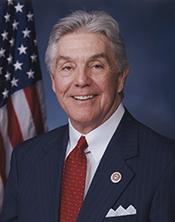0
0
0
Thin Blue Line Act
12/15/2023, 3:53 PM
Summary of Bill HR 130
The Thin Blue Line Act, also known as Bill 118 hr 130, is a piece of legislation introduced in the United States Congress. The purpose of this bill is to enhance the penalties for individuals who commit certain crimes against law enforcement officers.
Specifically, the Thin Blue Line Act would make it a federal crime to kill, attempt to kill, or conspire to kill a federal law enforcement officer, a state or local officer, or a first responder. The bill would also impose stricter penalties, including the possibility of the death penalty or life imprisonment, for individuals convicted of these crimes.
Supporters of the Thin Blue Line Act argue that it is necessary to protect those who put their lives on the line to protect and serve their communities. They believe that harsher penalties will serve as a deterrent and send a strong message that violence against law enforcement officers will not be tolerated. Critics of the bill, however, raise concerns about the potential for misuse of the death penalty and argue that it may not effectively address the root causes of violence against law enforcement officers. Overall, the Thin Blue Line Act is a controversial piece of legislation that seeks to increase protections for law enforcement officers and first responders. It is currently being debated in Congress, and its fate remains uncertain.
Specifically, the Thin Blue Line Act would make it a federal crime to kill, attempt to kill, or conspire to kill a federal law enforcement officer, a state or local officer, or a first responder. The bill would also impose stricter penalties, including the possibility of the death penalty or life imprisonment, for individuals convicted of these crimes.
Supporters of the Thin Blue Line Act argue that it is necessary to protect those who put their lives on the line to protect and serve their communities. They believe that harsher penalties will serve as a deterrent and send a strong message that violence against law enforcement officers will not be tolerated. Critics of the bill, however, raise concerns about the potential for misuse of the death penalty and argue that it may not effectively address the root causes of violence against law enforcement officers. Overall, the Thin Blue Line Act is a controversial piece of legislation that seeks to increase protections for law enforcement officers and first responders. It is currently being debated in Congress, and its fate remains uncertain.
Congressional Summary of HR 130
Thin Blue Line Act
This bill expands the list of statutory aggravating factors in death penalty determinations to also include killing or targeting a law enforcement officer, firefighter, or other first responder.
Read the Full Bill
Current Status of Bill HR 130
Bill HR 130 is currently in the status of Bill Introduced since January 9, 2023. Bill HR 130 was introduced during Congress 118 and was introduced to the House on January 9, 2023. Bill HR 130's most recent activity was Referred to the House Committee on the Judiciary. as of January 9, 2023
Bipartisan Support of Bill HR 130
Total Number of Sponsors
1Democrat Sponsors
0Republican Sponsors
1Unaffiliated Sponsors
0Total Number of Cosponsors
96Democrat Cosponsors
0Republican Cosponsors
96Unaffiliated Cosponsors
0Policy Area and Potential Impact of Bill HR 130
Primary Policy Focus
Crime and Law EnforcementPotential Impact Areas
- Crime victims
- Criminal procedure and sentencing
- Emergency medical services and trauma care
- Fires
- First responders and emergency personnel
- Health personnel
- Law enforcement officers
- Violent crime
Alternate Title(s) of Bill HR 130
Thin Blue Line Act
Thin Blue Line Act
To amend title 18, United States Code, to provide additional aggravating factors for the imposition of the death penalty based on the status of the victim.
Comments
Sponsors and Cosponsors of HR 130
Latest Bills
Southern Nevada Economic Development and Conservation Act
Bill S 1005December 10, 2025
ADS for Mental Health Services Act
Bill S 414December 10, 2025
ASCEND Act
Bill S 1437December 10, 2025
Reliable Federal infrastructure Act
Bill HR 4690December 10, 2025
SHOWER Act
Bill HR 4593December 10, 2025
Dismissing the election contest relating to the office of Representative from the Fourteenth Congressional District of Florida.
Bill HRES 312December 10, 2025
Dismissing the election contest relating to the office of Representative from the Thirtieth Congressional District of Texas.
Bill HRES 311December 10, 2025
Dismissing the election contest relating to the office of Representative from the at-large Congressional District of Alaska.
Bill HRES 310December 10, 2025
Dismissing the election contest relating to the office of Representative from the Twenty-eighth Congressional District of Texas.
Bill HRES 309December 10, 2025
Dismissing the election contest relating to the office of Representative from the Fourteenth Congressional District of Florida.
Bill HRES 308December 10, 2025
Thin Blue Line Act
Bill S 459December 15, 2023





